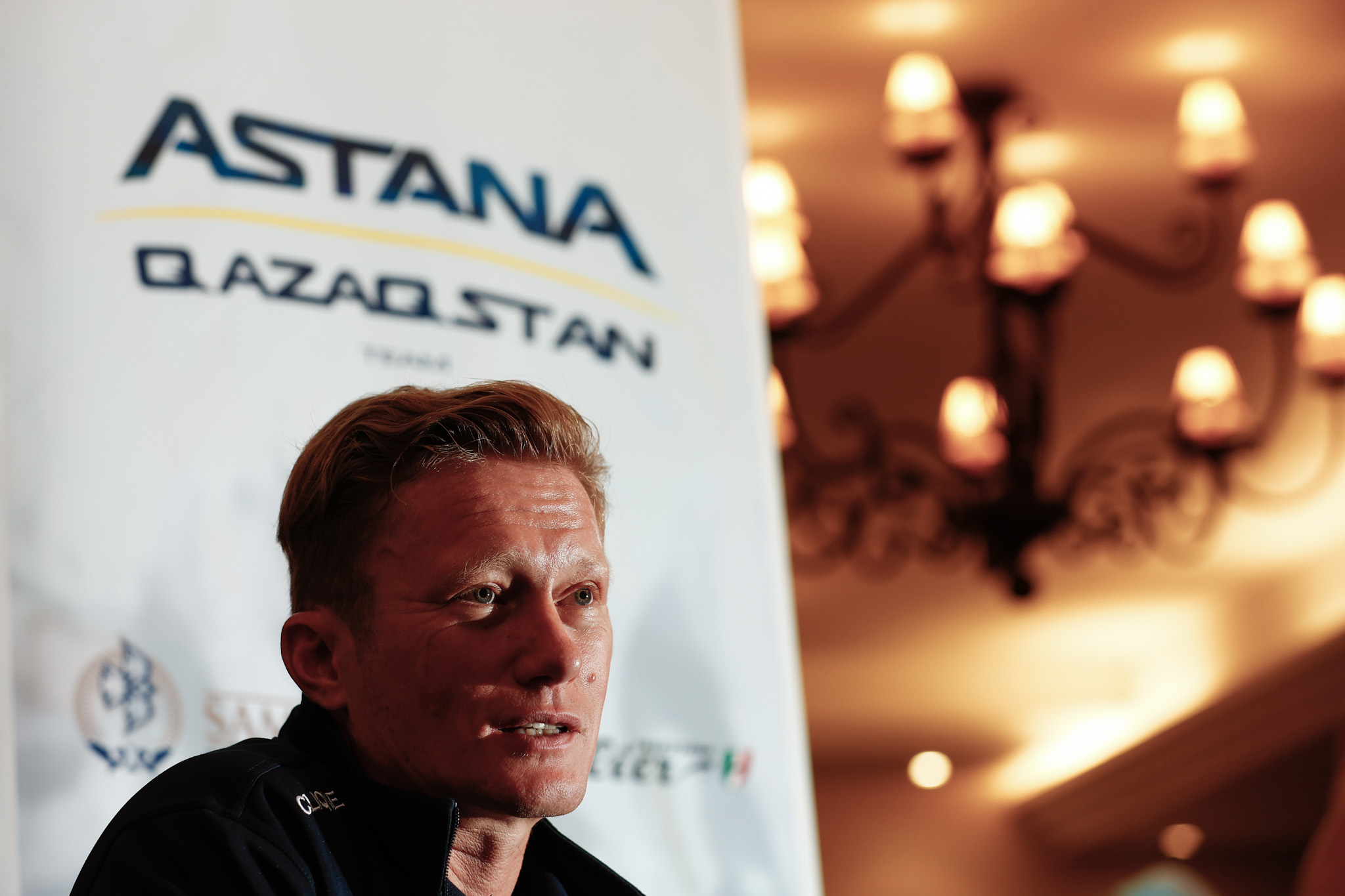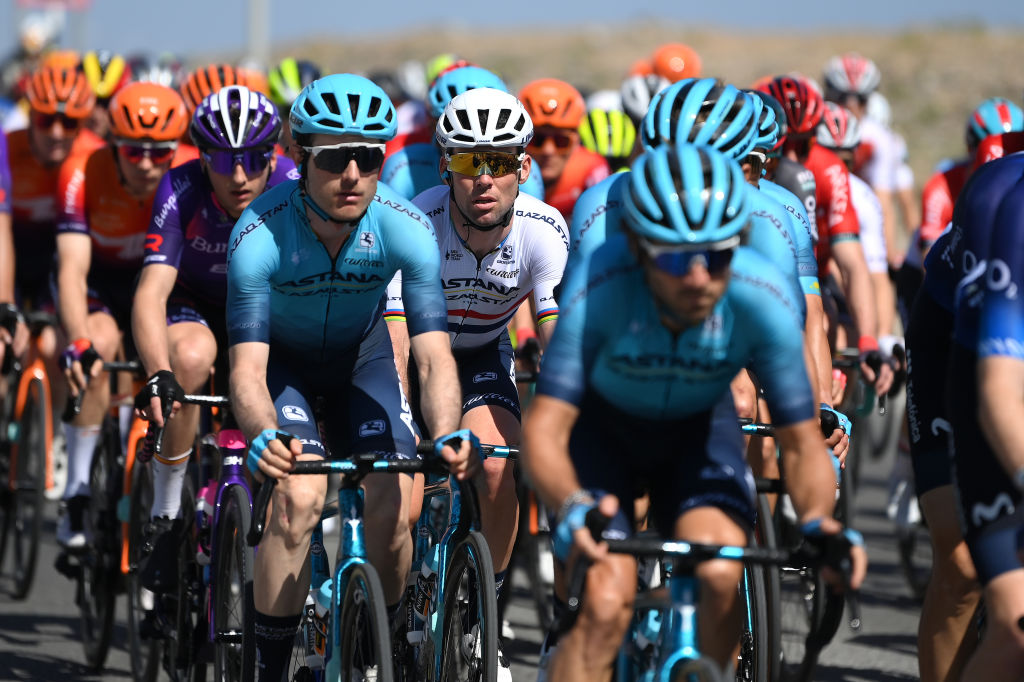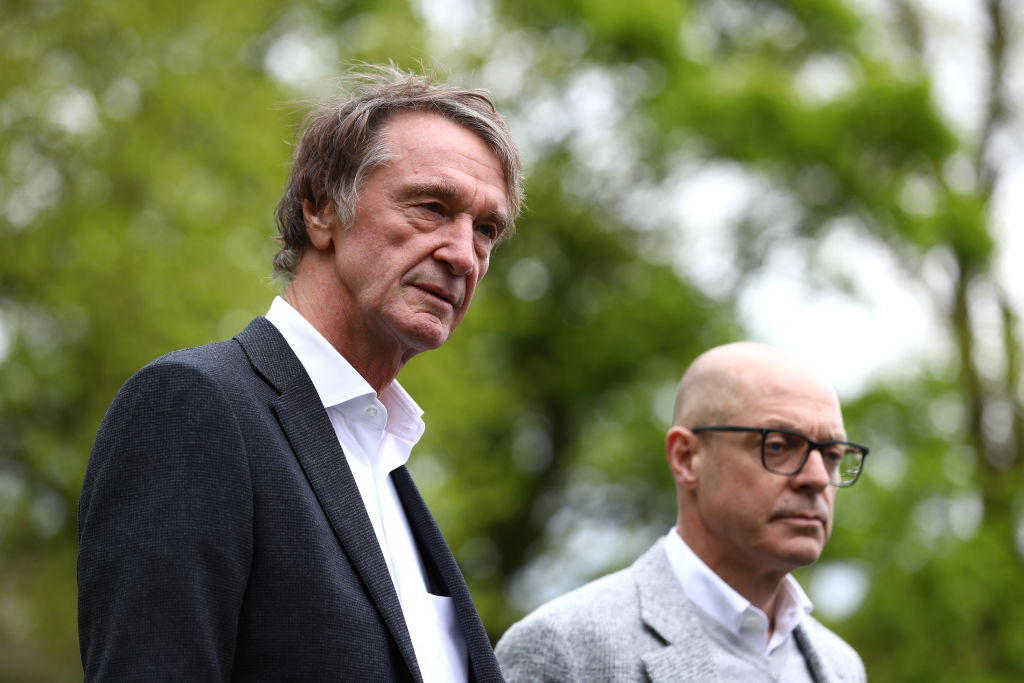Vinokourov: It's not all about the Tour de France with Mark Cavendish
Astana manager says sprinter's integration into team is 'going very well'

The latest race content, interviews, features, reviews and expert buying guides, direct to your inbox!
You are now subscribed
Your newsletter sign-up was successful
Standing beyond the finish at the Jabal Al Akhdhar climb as the rest of the peloton slowly picked their way up the decisive ascent of the Tour of Oman, of all the Astana Qazaqstan riders fighting its challenging gradients, team manager Alexandre Vinokourov was likely keeping his keenest eye out for Alexey Lutsenko, previously a double champion.
But if his thoughts also strayed towards a certain British sprinter that would only be logical, too, given the ascent of Jabal Al Akhar also saw Mark Cavendish complete his first race with the Kazakh squad.
Cavendish's arrival in Astana Qazaqstan was only definitively confirmed in mid-January. Being so late in the day, his debut at Oman, with only one flat stage out of five, partly constituted an extension of the team-building-and-bonding between the Briton and his team, albeit with 'live' ammunition rather than in a training camp.
But as Vinokourov says, the first few weeks have been more than encouraging in that area, and at the UAE Tour this week, the process of integration is set to continue. But he's at pains, too, to emphasise that rather than seeing Cavendish as a winning machine, the way Astana relates to Cavendish on the human side and vice versa is what counts the most.
"He's getting really well integrated in the team," Vinokourov told Cyclingnews, "He's happy and that's what matters."
"The first sprint" – on stage 1 of Oman – "didn't go super-well, but it was the first time they did a sprint, so we have to wait and see how it goes in the future.
"It's a pity that there was only one sprint, but little by little, we'll get there."
The latest race content, interviews, features, reviews and expert buying guides, direct to your inbox!
Cavendish has said in an interview with The Times recently that he appreciates Vinokourov's willingness to "see me as a person, not as a commodity," and Vinokourov, the team manager at Astana since he retired in 2012, argues that such an approach, prioritizing the human element in a working relationship, has always worked best with his riders.
"Maybe it's because I was a rider myself but I've always felt that was the most important," Vinokourov said. "That's the key to it all. And with Mark, we raced in the same peloton, not exactly together as he was a sprinter and I was an all-rounder.
"But we did run into other from time to time and then there was that time in London in the Olympics where we were both after the same thing, a gold medal."
But now their paths have converged in a definitive manager-rider relationship, and Vinokourov is hoping that at the UAE Tour, the process of team-building will step up a notch in the bunch sprints.
"We've got Cees Bol coming in there" – the Dutch sprinter, signed in a lead-out role for Cavendish, was not present in Oman – "and we're hoping things will start to go well there. We're not going to be going in there like QuickStep, that's for sure, but hopefully, Mark will be able to do some nice sprints. But for now, it's more about getting him fully integrated into the team."
Astana may not have a tradition of fielding bunch sprinters, but it's also true that times have moved on since Vinokourov began racing back in the late 1990s when the sprint stars like Alessandro Petacchi or Mario Cipollini needed a huge train to guide them to the finish.
Now, most teams will have at most two to three riders to look after a sprinter. Anything more than that is the exception rather than the rule, but as Vinokourov sees it, changing a team round to give them a more sprint-orientated focus is not as hard as all that.
"Quick Step have more than that, but it's true, it's not like the Saeco days with Cipollini," Vinokourov says. "But I used to be part of the train to lead out Erik Zabel at Telekom in the Tour de France or San Remo, and that certainly worked. So if you want to redirect a team like that [towards focussing on lead-outs], you can."

Cavendish worked with Martin Laas as his lead-out man in Oman and although Cees Bol currently is expected to take over that role in UAE, Vinokourov believes that it's worth trying out a number of combinations rather than just settling on one.
"Maybe we can find the combination by putting all of them together and Cees had carte blanche at the Saudi Tour and did pretty well there," he said, referring to two top-three places at the race.
"But maybe taking them both [to the Tour] is a bit too much because Mark sometimes needs support getting over the Tour de France climbs as well. We'll see. Maybe it'll be better to think about how we deploy them [Laas and Bol] in the races beforehand as well."
Talking of races beforehand, Cavendish's program is set to include the Giro d'Italia, although that's subject to confirmation, as well as Tirreno-Adriatico, Milano-San Remo and a number of one-day races this spring in Belgium, then onto the perhaps the Tour of Turkey.
As Vinokourov sees it, and as he told Cyclingnews, "the more races you do, the better it is. And the less pressure it is for the Tour."
But overall, as Vinokourov agrees, one enormous advantage of having Cavendish in Astana Qazaqstan, whatever happens, is that he has given the team a reference point and not just for races.
"Voila. Everybody works for him for things and that element was perhaps missing last year, But he also gives us a great reference too to attract other riders, British or Scandinavian or whatever.
"Up until now, the team has been a bit more geared towards Italian, Spanish and Kazakh riders, and this maybe will open the door to younger British riders."
As Vinokourov points out, Cavendish is the first rider from the United Kingdom ever to form part of the squad.
And as Vinokourov confirms too, the team is far from thinking about just the Tour de France when it comes to Cavendish.
"The more victories we get, the better, and if we get there in the Tour this year as well, then – chapeau. But victories in the bag are victories in the bag. We can't just put everything on the Tour, it'd be too risky," he said.
"And the important thing, for now, is to get him integrated and feeling happy, because sometimes when you join a new team it's tough. If the atmosphere in a team is good, then for sure you'll always do your best."
Alasdair Fotheringham has been reporting on cycling since 1991. He has covered every Tour de France since 1992 bar one, as well as numerous other bike races of all shapes and sizes, ranging from the Olympic Games in 2008 to the now sadly defunct Subida a Urkiola hill climb in Spain. As well as working for Cyclingnews, he has also written for The Independent, The Guardian, ProCycling, The Express and Reuters.

